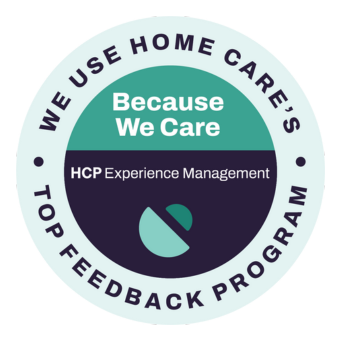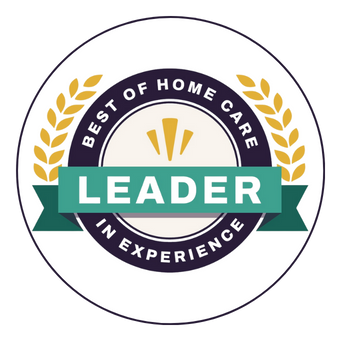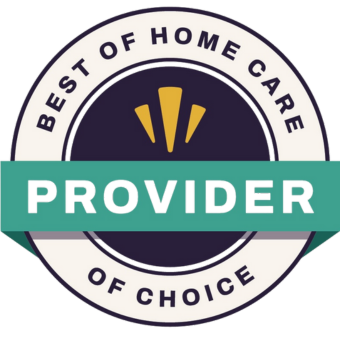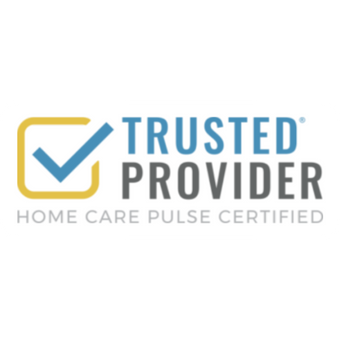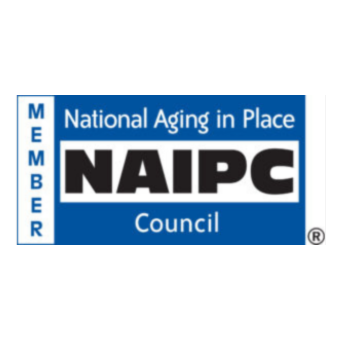As most people grow older it becomes difficult for them to effectively communicate with others. Elderly individuals oftentimes face communication hurdles due to sensory changes like hearing loss, failing eyesight, or an inability to express their thoughts to others. For informal caregivers, trying to work through those communication barriers can be frustrating and stressful.
Thankfully, there are several proven ways to overcome communication barriers when assisting an elderly loved one, starting with these four.
Seniors Face these Communication Barriers
Due primarily to the aging process many seniors struggle with these communication barriers:
- Hearing loss. Once an elder’s hearing capacity starts to diminish, they have trouble recognizing when someone is talking to them or clearly hearing what that person is saying. At that point, many seniors turn to hearing aids as a solution.
- Failing eyesight. Millions of older adults have age-related eye diseases that cause vision problems. Sometimes surgery, medications, or new eyeglasses help improve their eyesight, but not always.
- Medications. Certain medications that the elderly take can interfere with their ability to communicate by causing confusion, fatigue, or ringing in the ear (tinnitus). In most cases those side effects are reversible.
- Neurological damage. Some seniors have trouble expressing themselves because of neurological conditions like brain lesions, Parkinson’s, Alzheimer’s, or strokes. In many cases the neurological damage is permanent, making communication more difficult.
If your loved one is currently experiencing any of these problems, finding effective ways to communicate with them is oftentimes a difference-maker for their continued health and wellbeing.
Communication Tips for Informal Caregivers
In addition to new eyeglasses, hearing aids, and medication adjustments, these are 4 ways to improve communication between you and your loved one:
1. Maintain eye contact
Always be sure to sit face-to-face with your senior while maintaining eye contact. In addition to eliminating background distractions doing so lets your loved one know that they have your undivided attention. Establishing and maintaining eye contact also allows your senior to read your facial expressions more easily.
2. Listen attentively
Probably the most important aspect of communicating effectively with an aging adult is listening in an attentive fashion. While remembering that you’re not the only person who’s struggling to communicate, use non-verbal cues like a smile, nod, or hand gestures to let them know that you understand what they are trying to say.
But if you are still unsure of what exactly that is, ask simple questions to help them convey their thoughts more clearly.
3. Communicate clearly
When communicating with an elderly individual, it’s important to be sure that the communication methods that you are using are clear to them. While speaking, use a volume and pace that the other person can comprehend. Be cognizant of any sensory barriers that they might have.
For example, if your senior is hard of hearing, speak louder than you normally would when communicating with someone younger. If failing eyesight is a problem, use body language to emphasize your point. In certain situations, using drawings, pictures, or writing down words on a pad will work better than verbal communication.
4. Practice patience
Patience is essential when communicating with a senior, especially when you’re not able to get your point across at first. Realistically, it may take you having to repeat yourself several times before your loved one understands you. However, getting irritated or frustrated is not going to help.
If you find that you have to repeat yourself often, try slowing down and speaking more clearly until your loved one can fully understand.
Communicating Effectively with Seniors is Our Specialty
Trying to bridge communication barriers between you and your elderly loved one can be frustrating and stressful. When you need assistance, give us a call.
As a fully licensed home care agency our experienced caregivers are highly trained on how to communicate effectively with seniors so they can continue aging comfortably in place right where they want to be. While in the home our compassionate caregivers can also deliver services like personal care, companionship, meals, homemaking, medication reminders, and transportation.
Using a team approach that’s focused on maintaining your senior’s quality of life and dignity, all our family-trusted home care amenities can be individually personalized into an affordable package that’ll restore your peace of mind! To learn more about us, or to schedule a FREE in-home consultation for a senior in our service area today, please visit us online.







